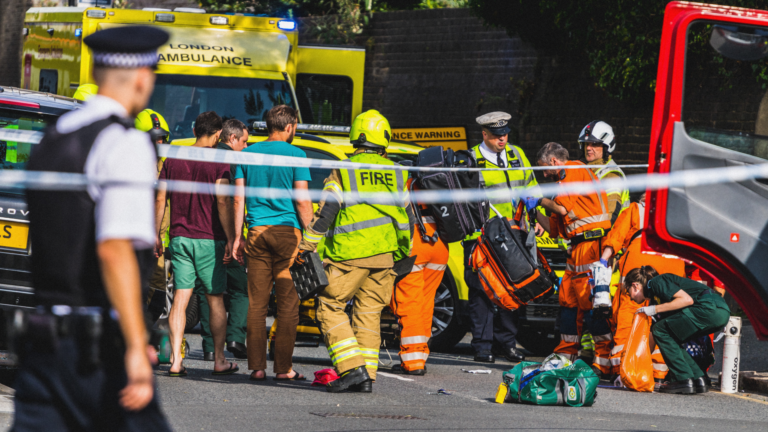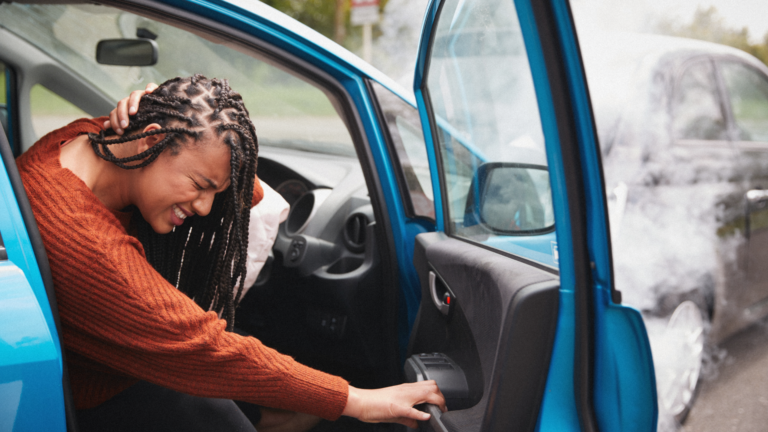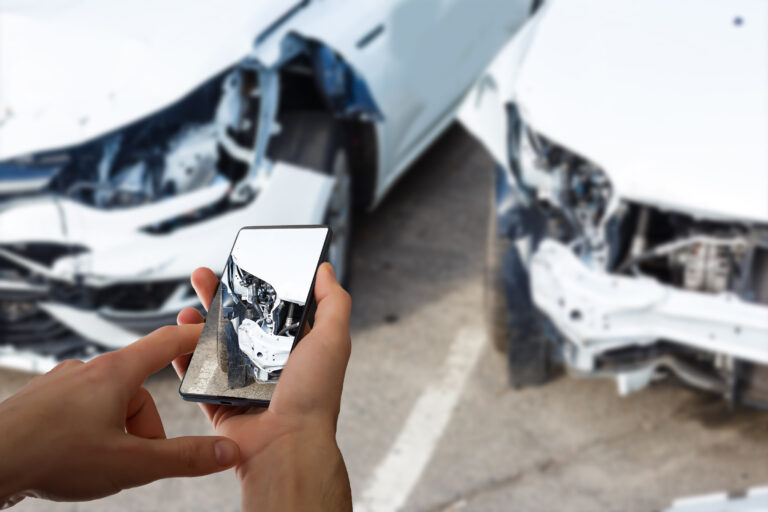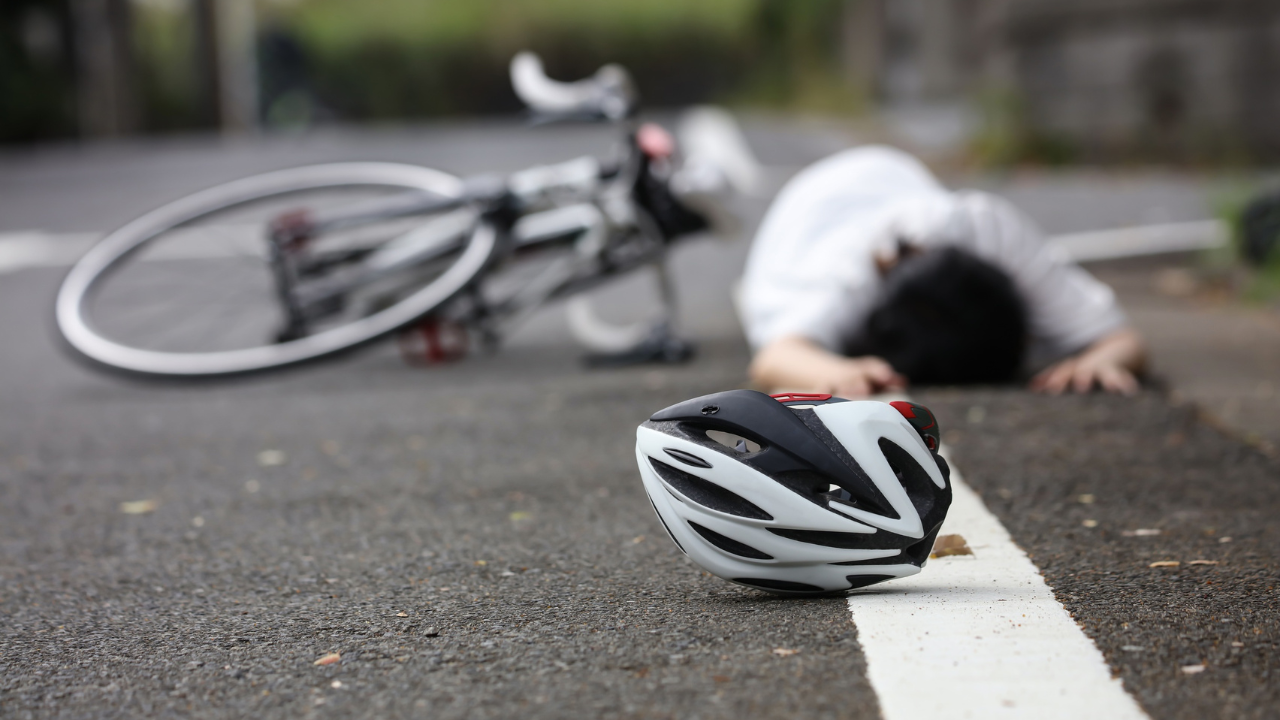
A hit-and-run accident occurs when a driver involved in a collision flees the scene without stopping to exchange information or provide assistance. These incidents can leave victims confused, injured, and unsure of what to do next. For residents of Atlanta and the surrounding region, understanding the immediate steps to take is crucial. Not only does this ensure personal safety, but it also helps protect legal rights and increases the chances of holding the at-fault driver accountable.
Knowing how to respond can make all the difference when dealing with the aftermath of a hit-and-run. Legal, medical, and insurance implications often arise quickly, and failing to act promptly could jeopardize your ability to recover compensation. Thankfully, resources like The Super Lawyer specialize in guiding victims through these challenging situations. Now, let’s dive into the first step you should take after a hit-and-run in Atlanta.
Step 1: Ensure Personal Safety and Check for Injuries
The very first thing you need to do after a hit-and-run is prioritize your safety and that of any passengers. If possible, move yourself and others away from traffic to a safe location, such as the sidewalk or a nearby parking lot. Staying in harm’s way could lead to further accidents or injuries. Once you’re out of danger, assess whether anyone has been hurt. Even seemingly minor injuries should be taken seriously, as symptoms can worsen over time.
If anyone is injured, call 911 immediately and request medical assistance. It’s always better to err on the side of caution, especially since some injuries might not be immediately apparent. Remember, your health comes first, and getting checked by a professional ensures you’re not overlooking hidden damage. With everyone safe, you’ll be ready to address the next critical steps.
Step 2: Call Emergency Services
After ensuring safety and checking for injuries, your next priority is calling emergency services. Dial 911 and clearly explain that you’ve been involved in a hit-and-run. Provide as much detail as possible, including the location, time of the incident, and any known information about the fleeing vehicle. Dispatchers will send police officers and paramedics to assist you while documenting the report.
In Atlanta, emergency responders are trained to handle hit-and-run cases efficiently. When they arrive, cooperate fully by sharing everything you remember about the incident. Their role is to secure the scene, collect evidence, and begin the investigation. Having law enforcement on your side early on not only helps document the event but also strengthens your case for insurance claims and potential legal action.
Step 3: Gather Evidence and Document the Scene
While waiting for authorities, gather as much evidence as you can. Take photos and videos of the scene, including vehicle damage, skid marks, debris, and anything else relevant. If there were witnesses, ask for their contact information and brief statements about what they saw. Documenting details like the direction the suspect fled or the license plate number (if visible) can significantly aid the investigation.
This evidence serves multiple purposes—it supports your insurance claim, strengthens police reports, and provides valuable material if you decide to pursue legal action. Remember, the more thorough you are now, the easier it will be to piece together what happened later. So grab your phone, snap those pictures, and jot down notes before leaving the scene.
“Georgia’s hit-and-run law requires drivers to stop, provide assistance, and exchange information after an accident; fleeing the scene is illegal and carries severe penalties.” -Hines Law
Step 4: Report the Incident to Atlanta Police
Filing an official police report is a mandatory step after a hit-and-run in Georgia. The Atlanta Police Department requires drivers to report accidents resulting in property damage exceeding $500 or involving injuries. Visit the nearest precinct or submit your report online if available. Be sure to include all gathered evidence, witness statements, and a detailed account of the incident.
An accurate and comprehensive report is essential for both criminal investigations and civil claims. Double-check the document for errors before finalizing it, and keep a copy for your records. Follow up regularly with the police to track progress on locating the suspect. A solid police report lays the groundwork for resolving your case effectively.
“The driver is legally required to take these actions in the situation of an accident, and not doing any of these steps is a potential hit-and-run.” -Steel Horse Law
Step 5: Notify Your Insurance Company
Once you’ve reported the incident to the police, notify your insurance company as soon as possible. Most policies require timely reporting of accidents to avoid claim denials. Share the police report, photos, and other documentation to substantiate your claim. Honesty is key—misrepresenting facts can lead to severe consequences, including policy cancellation.
Insurance companies evaluate hit-and-runs carefully due to their complexity. While they may cover damages under uninsured motorist provisions, rates could still increase depending on the circumstances. Working with experienced attorneys like those at The Super Lawyer can help navigate negotiations and maximize your payout. Keep communication open and organized throughout the process.
“Georgia law requires you to report any traffic accident involving injury, death or significant property damage.” -Gerber & Holder Law
Step 6: Seek Legal Counsel if Necessary
If the hit-and-run resulted in serious injuries, significant property damage, or unresolved liability issues, consulting a lawyer is highly recommended. Legal professionals specializing in personal injury and traffic law can guide you through complex procedures, protect your rights, and advocate on your behalf. They’ll also ensure you meet all deadlines for filing claims or lawsuits.
The Super Lawyer offers expertise tailored to Atlanta residents facing hit-and-run challenges. From negotiating with insurers to pursuing justice against negligent drivers, skilled attorneys play a vital role in securing fair compensation. Don’t hesitate to seek counsel if you feel overwhelmed or unsure about handling the situation alone.
“Acting quickly after a hit-and-run is crucial to preserving evidence, meeting legal deadlines, and increasing the chances of locating the at-fault driver.” -Hines Law
Understanding Georgia Hit-and-Run Laws
Georgia law treats hit-and-runs seriously, with penalties outlined in O.C.G.A. § 40-6-270. Drivers must stop, exchange information, render aid to injured parties, and notify authorities after collisions. Failing to comply constitutes a misdemeanor or felony offense, depending on the severity of damages or injuries caused. Understanding these statutes empowers victims to recognize violations and hold offenders accountable.
Misdemeanor charges typically apply to incidents involving property damage only, while felonies cover cases with bodily harm or fatalities. Convictions carry hefty fines, jail time, and license suspensions. Repeat offenders face escalated punishments, emphasizing the importance of adhering to legal obligations post-accident. Knowledge of these laws ensures compliance and informs decisions during stressful moments.
“Victims of hit-and-run accidents can recover compensation through legal action, uninsured motorist coverage, and by working with experienced attorneys.” -Hines Law
For Atlanta drivers, awareness of local ordinances complements state regulations. Both systems aim to deter reckless behavior and promote accountability among motorists. By familiarizing yourself with Georgia’s hit-and-run framework, you contribute to safer roads and better outcomes for all parties involved. Stay informed, stay prepared!
Potential Penalties and Consequences
Penalties for hit-and-run offenses vary based on the incident’s specifics. First-time misdemeanor offenders may face fines between $300 and $1,000, along with up to 12 months in jail. Felony convictions result in harsher sentences, including multi-year prison terms and fines exceeding $5,000. License suspensions and permanent criminal records further complicate matters for violators.
“Felony charges apply if the accident involves bodily injury, serious injury, or fatalities, resulting in prison sentences ranging from 1-5 years or more.” -Hines Law
Repeat offenses escalate rapidly, with third strikes often classified as felonies regardless of prior penalties. Factors like intoxication, excessive speed, or reckless driving exacerbate consequences. Given these risks, staying calm and following proper protocols after an accident becomes even more critical. Avoid compounding mistakes by seeking expert guidance when needed.
How Atlanta Police Investigate Hit-and-Run Cases
Atlanta Police utilize advanced techniques to investigate hit-and-run cases, prioritizing public safety and justice. Officers collect physical evidence, interview witnesses, and review surveillance footage from nearby cameras. Traffic monitoring systems and community tips also play pivotal roles in identifying suspects. Collaboration with neighboring jurisdictions enhances investigative capabilities across metro Atlanta.
“Civil liability is another consequence of fleeing the scene. Hit-and-run drivers may be held responsible for compensatory damages, including medical expenses, property damage, and lost wages.” -Hines Law
Victims can assist by providing detailed descriptions of vehicles, suspects, and timelines. Prompt reporting amplifies the likelihood of apprehending perpetrators swiftly. APD dedicates substantial resources to solving these crimes, underscoring their commitment to protecting citizens and deterring future offenses. Trust the process and remain patient as investigators work diligently on your behalf.

Victim Compensation and Civil Remedies
Hit-and-run victims have several avenues for pursuing compensation despite challenges posed by unidentified drivers. Uninsured motorist coverage within auto policies often covers damages, though limits vary. Additionally, civil lawsuits allow victims to seek restitution directly from liable parties once identified. Crime victim compensation programs may supplement financial losses in extreme cases.
“These elements, combined with the city’s infrastructure, which often lacks sufficient provisions for pedestrian and cyclist safety, have undoubtedly contributed to the growing number of hit-and-run incidents in the Atlanta area.” -Gerber & Holder Law
Documentation remains paramount throughout this journey. Maintain meticulous records of medical bills, repair estimates, lost wages, and emotional distress. Time-sensitive deadlines govern many claims, so act swiftly to preserve eligibility. Partnering with seasoned attorneys streamlines the recovery process, ensuring no stone goes unturned in securing rightful reparations.
What to Do If You Witness a Hit-and-Run
Witnessing a hit-and-run places you in a unique position to assist victims and authorities. Immediately call 911 to report the incident, describing the fleeing vehicle’s make, model, color, and direction of travel. Capture photos or videos of the scene and note distinguishing features like license plates or dents. Remain available for questioning until officers arrive.
Your involvement strengthens the case against the offender and aids victims in seeking justice. Never attempt to chase or confront suspects, as doing so endangers yourself and others. Instead, focus on gathering accurate, actionable intel that bolsters law enforcement efforts. Every detail counts when piecing together hit-and-run puzzles.
Prevention Tips: Minimizing Hit-and-Run Risks
Proactive measures reduce the likelihood of becoming a hit-and-run statistic. Install dashcams to record interactions on the road, offering irrefutable proof during disputes. Choose well-lit, monitored parking areas to minimize vulnerability overnight. Practice defensive driving habits, maintaining awareness of surroundings and avoiding distractions behind the wheel.
Atlanta actively promotes education campaigns targeting hit-and-run prevention. Public service announcements, school programs, and community workshops raise awareness about responsible driving behaviors. By embracing these initiatives and encouraging peers to do the same, we collectively foster safer streets for everyone. Stay vigilant and spread the word!
Frequently Asked Questions
What is considered a hit-and-run in Georgia? A hit-and-run occurs when a driver involved in a collision leaves the scene without fulfilling legal duties like exchanging information or rendering aid.
How long do you have to report a hit-and-run in Atlanta? Reporting must occur promptly, ideally within hours of the incident, to comply with state mandates and facilitate effective investigations.
Can I still recover compensation if the at-fault driver is not found? Yes, uninsured motorist coverage or crime victim compensation programs may provide financial relief even if the perpetrator remains unknown.
Will my insurance rates increase after being involved in a hit-and-run? Rates may rise depending on policy terms and claim history, though honest reporting mitigates adverse effects.
What penalties do first-time offenders face for hit-and-run in Georgia? Misdemeanor penalties include fines up to $1,000 and imprisonment for up to 12 months; felonies entail harsher consequences.
Conclusion
Being involved in a hit-and-run in Atlanta is undoubtedly stressful, but knowing how to respond minimizes risks and maximizes recovery opportunities. From prioritizing safety and gathering evidence to filing reports and consulting legal experts, each step plays a vital role in navigating the aftermath. Resources like The Super Lawyer stand ready to support victims every step of the way.
Ultimately, swift action protects both personal wellbeing and legal standing. Empower yourself with knowledge of Georgia’s hit-and-run laws and advocate for safer driving practices citywide. If you or someone you know experiences a hit-and-run, don’t hesitate to reach out to authorities and trusted professionals immediately. Together, we can create a safer Atlanta for all.
If you or someone you care about needs help after a hit-and-run, contacting The Super Lawyer can provide invaluable guidance and representation. Act quickly to safeguard your rights and explore available options. Remember, you’re not alone—support is just a call away.
